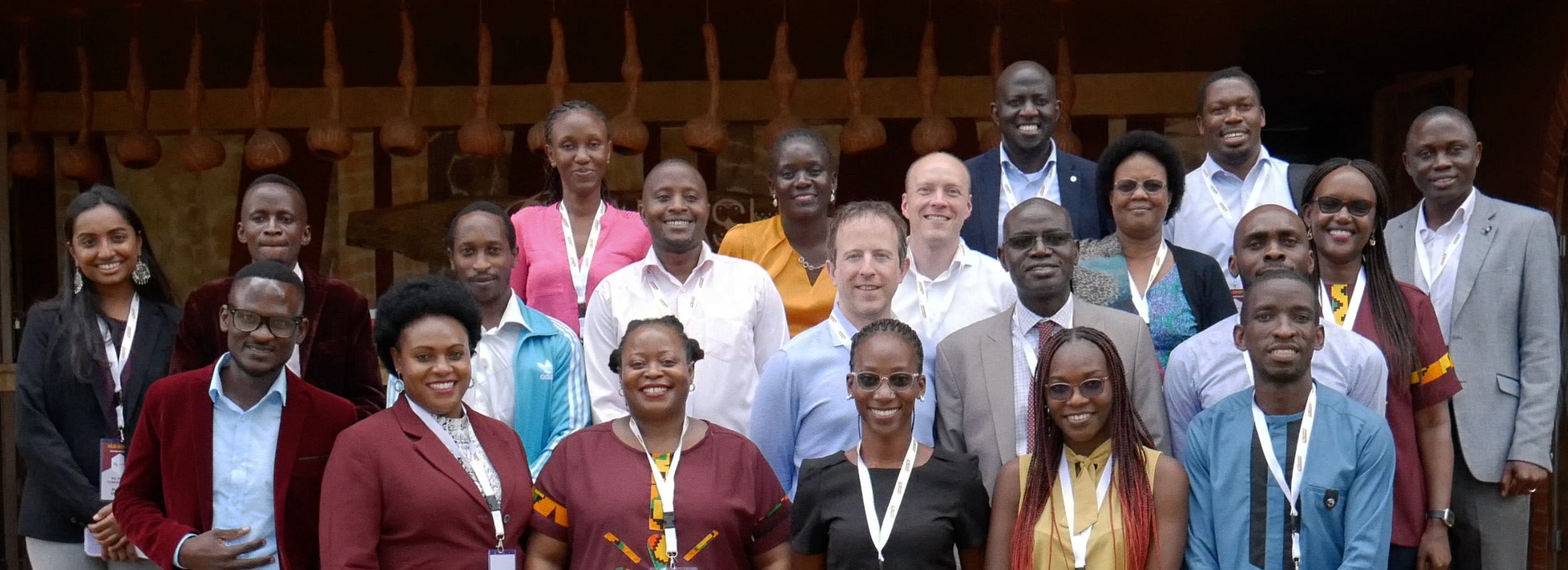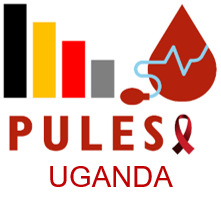
Uganda – PULESA

| Study title | Strengthening the Blood Pressure Care and Treatment Cascade for Ugandans Living with HIV–Implementation Strategies to SAve Lives (PULESA) |
| Study design | Comparative effectiveness stepped wedge cluster randomized trial of two implementation strategies (HTN-BASIC and HTN-PLUS) |
| Setting/location | Kampala and Wakiso District, Uganda (16 HIV clinics) |
| Study participants | HIV-positive patients over 18 years of age who receiving care at a participating clinic and have been diagnosed with hypertension. Health care providers. |
| Principal investigator | Fred C. Semitala, Infectious Diseases Research Collaboration (IDRC) and Makerere University (Uganda) |
| MPIs | Chris Longenecker, University of Washington (USA) |
| Co-Investigators | Moses R. Kamya, Infectious Diseases Research Collaboration (IDRC) and Makerere University (Uganda), Anne Ruhweza Katahoire, Makerere University; James Kayima, Makerere University; Martin Muddu, Makerere University; Jeremy Schwartz, Yale University (USA); Donna Spiegelman, Yale University; Rachel Nugent, RTI International (USA); Gerald Mutungi, Uganda Ministry of Health; Isaac Ssinabulya, Uganda Heart Institute |
| Summary | The PULESA study team is working to improve blood pressure screening and control among people living with HIV (PLHIV) in Uganda in a scalable and sustainable manner. Guided by the Consolidated Framework for Implementation Research, the trial is testing the effectiveness, implementation, and cost-effectiveness of two different strategies to integrate evidence-based hypertension and HIV care in Kampala and Wakiso Districts: HTN-BASIC and HTN PLUS. Study objectives are: 1) to determine the effectiveness of HTN-BASIC and HTN-PLUS strategies to improve hypertension cascade metrics; 2) to determine implementation outcomes of HTN-BASIC and HTN-PLUS strategies (the primary implementation outcome is scalability); and 3) to evaluate the economic and financial sustainability of the integrated care strategies. The HTN-BASIC intervention will consist of providing consistent access to diagnostic equipment and evidence-based antihypertensive drugs at no cost to the hypertensive patients. A consistent supply of three anti-hypertensive drugs will be supplied to each clinic in the trial. The HTN-PLUS intervention will have all the components of HTN-BASIC but will also include a more intensive package of activities for clinic staff, including training on hypertension management, differentiated service delivery, remote patient monitoring, and a performance improvement program. This enhanced intervention was developed by the team in consultation with clinicians and health administrators through a human-centered design process. Sixteen clinics will be randomized to the order in which they will begin intervention, with two clinics initiating the intervention every two months after a run-in (introductory) period. Sites will be additionally randomized to receive the HTN-BASIC package only or the enhanced HTN-PLUS intervention. Clinic data will be collected during the control period, run-in period, and the intervention phase, and an additional longitudinal cohort study will continue for a few months after the intervention phase has concluded to gather more granular detail on how hypertension care is being implemented at the HTN-BASIC and HTN-PLUS sites. |
Meet the Team

Fred Semitala
Contact PI, Makerere University

Chris Longenecker
University of Washington (USA)
PULESA is funded by the National Heart, Lung, and Blood Institute (NHLBI), a division of the US National Institutes of Health (NIH), in partnership with the Fogarty International Center through grant UH3-HL-154501.
